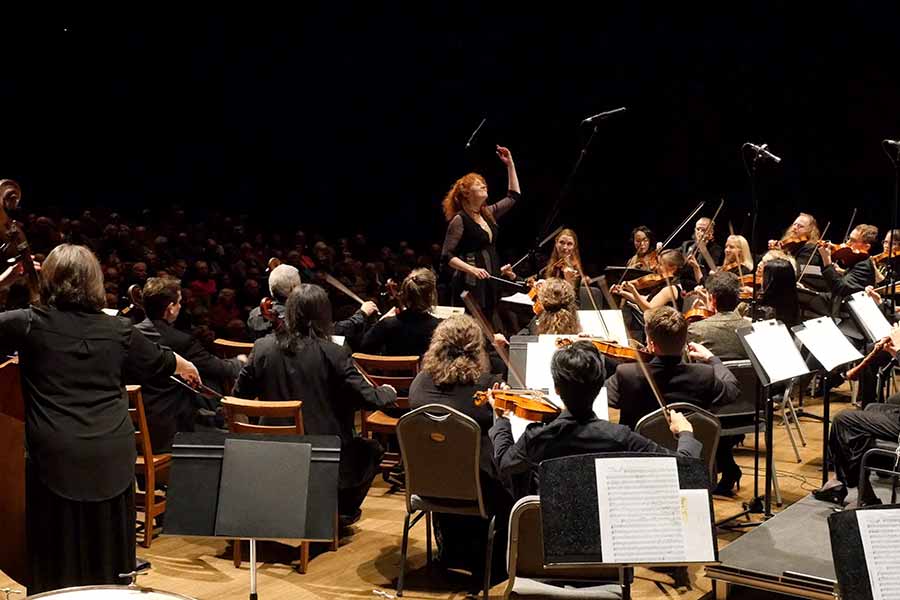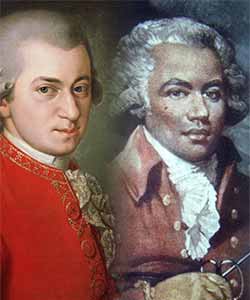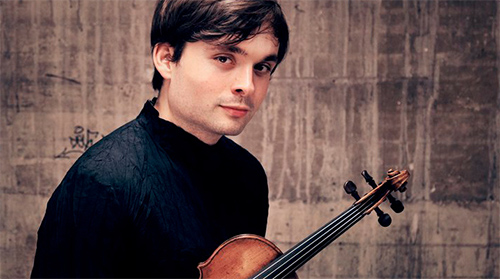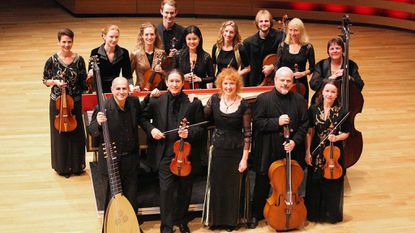by Daniel Hathaway

The middle show, on Saturday in Mandel Hall at Severance Music Center, reflected the Orchestra’s stature as a group that can share a stage with distinguished ensembles in mainline venues. The programs on Friday and Sunday in churches in Akron and Bay Village took profit of Apollo’s Fire’s portability and its determination to bring music out to people where they are.
The programming was festive, featuring an overture, a solo motet, and a symphony by the divine Mozart, and unusual for highlighting the work of a fascinating, under- unexplored composer who could handily win a sword fight against five attackers in the afternoon, then dust himself off and play chamber music at night.
And the featured soloists, who can knock the socks off an audience with their dazzling playing alone, reached deep into their reservoirs of charm to make personal connections with their listeners. Sunday’s concert at St. Raphael Church in Bay Village was an amazing event.
The afternoon began with an ominous reading of the overture to Don Giovanni whose emotional temperature Sorrell kept close to the boiling point, profiting from the extra heft available from some 40 musicians.


Sorrell and the orchestra were attentive collaborators, the winds contributing sonorities that nicely contrasted with the occasional steeliness of the strings. Fullana, who was greeted with spontaneous applause after the first movement, got a full measure of approval from the audience following the Rondo with its adorable theme.

Just before the end, Hedlam saw her way to a high C and followed that path, crowning the motet with a glorious conclusion and bringing a delighted audience along for the ride.
The concert could have ended quite satisfyingly right there, but Sorell had brought the “Haffner” Symphony along to the party for a grand finale. Once again, Apollo’s Fire reveled in its pumped-up forces and in the bright key of D Major, turning in a rhythmically splendid performance full of excitement and power, yet clean and transparent. It was wonderful to hear a large ensemble of period instruments playing in a lively acoustic on Sunday.

Of course, at the end the question remained: how did the Chevalier’s music measure up to Mozart’s when programmed side by side? If you had your choice, would you rather appear in a fencing match with Joseph Boulange or in a composition contest with Mozart? Discuss.
Published on ClevelandClassical.com May 11, 2022.
Click here for a printable copy of this article


